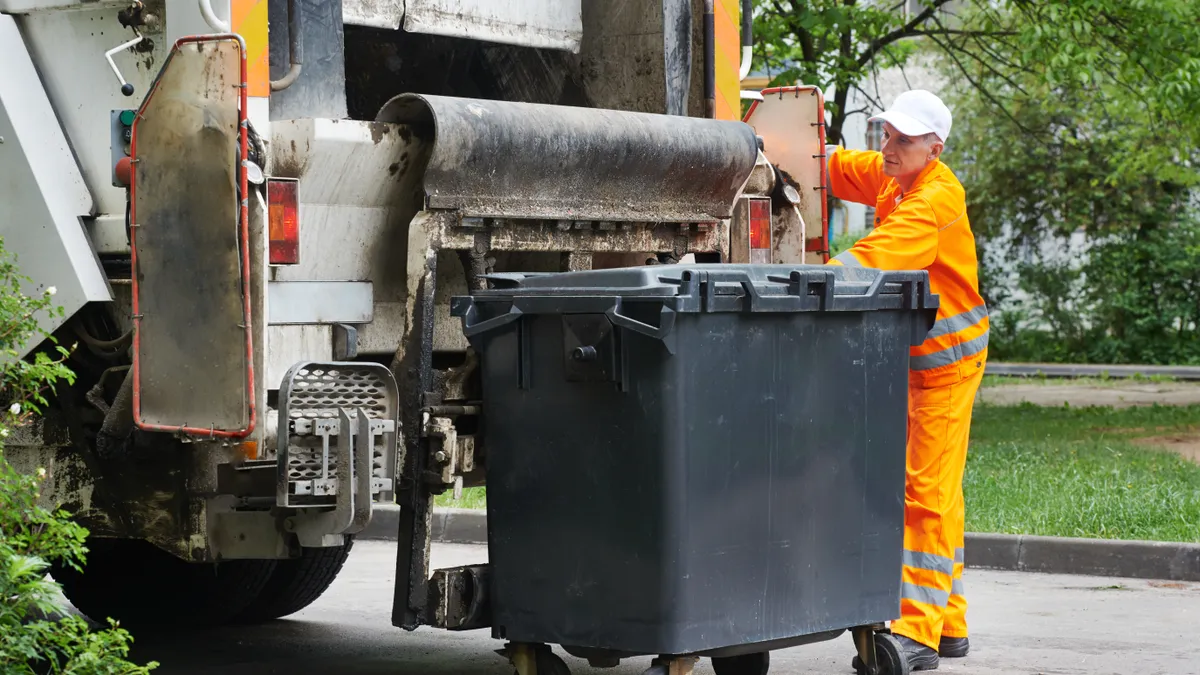Dive Brief:
- Indiana Sen. Luke Kenley has introduced a bill to prohibit districts from imposing fees or property taxes after 2017, which would include fees for trash services other than recycling. Meanwhile, Sen. Liz Brown is sponsoring a bill authorizing counties to dissolve or withdraw from districts. These two bills could be combined, according to Kenley, as reported in the Star Press.
- Kenley suggested private sectors can assume the roles that solid waste districts have and enable cities to earn revenue while lowering property taxes that pay for the service. The total tax rate for all local government units in Muncie in 2015 was $5.17, of which the solid waste districts' tax rate was less than a penny.
- The districts’ funding models vary; for example, the East Central district leverages property taxes and recycled 12,222 tons in 2014, which cost $660,865 or $2.07 per capita. The Henry County district charges a $12 annual user fee to households and businesses and spent $263,740 to recycle 1,575 tons in 2014, which was $5.40 per capita. The Randolph County district recycled 1,085 tons, at $7.90 per capita.
Dive Insight:
The district recycling program naysayers do support recycling, but say that they believe the private sector can provide the same or greater service at less expense to residents.
"We are certainly not stepping backward in terms of the value of recycling," said Kenley.
However JoAnne McCorkle, administrative assistant for Henry County Solid Waste Management District, believes rebuking district’s recycling function would be a mistake.
"I think we fill a niche the private sector doesn't take care of," she said. "We address the health and welfare of our communities. We have kept tons of chemicals, oils, pesticides and electronics out of our environment."
At any rate, recycling is not cheap. One Indiana County has considered closing all but one recycling drop-off site after voting against additional appropriations with heated debate on either side over the need for funds that would enable the government to provide this service.
In addition to recycling, the districts assume other waste management roles, such as debris management services after storms, and collaborating with law enforcement on prescription drug take-back days.
"A lot of the money we receive — about half our money — we give back to the counties in grants," East Central district Director Kyle Schrink said, adding “If you compare us across the state, we are very competitive. In 2014, we were third lowest in per capita spending. In total recycling, we were second behind St. Joe County ... and just outside the top five in household hazardous waste."














